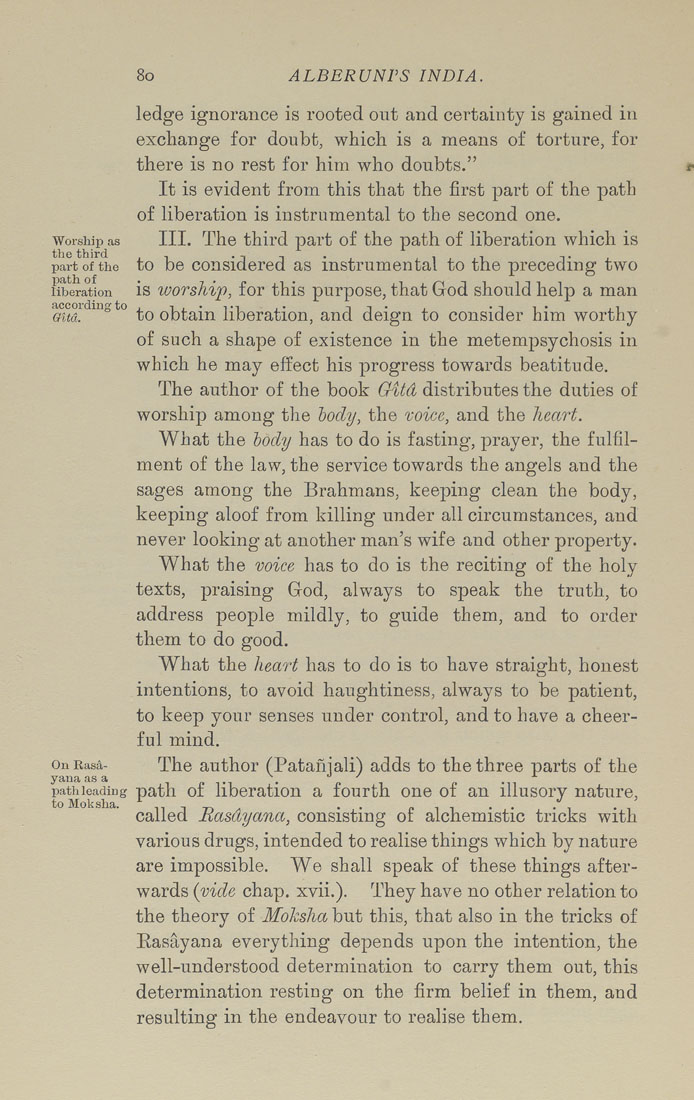Bīrūnī, Muḥammad ibn Aḥmad, Alberuni's India (v. 1)
(London : Kegan Paul, Trench, Trübner & Co., 1910.)
|
||
|
|
|
|
| Page 80 |

8o ALBERUNPS INDIA. ledge ignorance is rooted out and certainty is gained in exchange for doubt, which is a means of torture, for there is no rest for him who doubts." It is evident from this that the first part of the path of liberation is instrumental to the second one. Worship as III. The third part of the path of liberation which is part of the to be Considered as instrumental to the preceding two liberation is worship, for this purposc, that God should help a man 'guu. " to obtain liberation, and deign to consider him worthy of such a shape of existence in the metempsychosis in which he may effect his progress towards beatitude. The author of the book Gitd distributes the duties of worship among the body, the voice, and the heart. What the body has to do is fasting, prayer, the fulfil¬ ment of the law, the service towards the angels and the sages among the Brahmans, keeping clean the body, keeping aloof from killing under all circumstances, and never looking at another man's wife and other property. What the voice has to do is the reciting of the holy texts, praising God, always to speak the truth, to address people mildly, to guide them, and to order them to do good. What the heart has to do is to have straight, honest intentions, to avoid haughtiness, always to be patient, to keep your senses under control, and to have a cheer¬ ful mind. On Rasa- The author (Patafiiali) adds to the three parts of the yana as a ipti ■ •> / J- pathieading path of liberation a fourth one of an illusory nature, to Moksha. ^^ -• t~, ^ .. pit •• called Uasayana, consisting or alchemistic tricks with various drugs, intended to realise things which by nature are impossible. We shall speak of these things after¬ wards (vide chap, xvii.). They have no other relation to the theory of Moksha but this, that also in the tricks of Rasayana everything depends upon the intention, the well-understood determination to carry them out, this determination resting on the firm belief in them, and resulting in the endeavour to realise them. |
| Page 80 |







